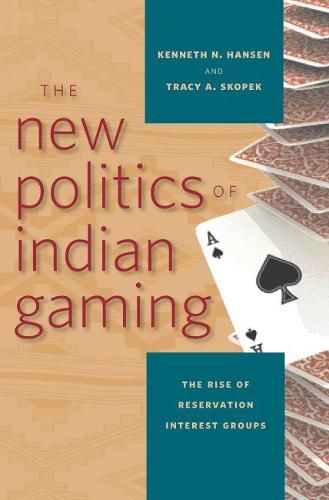Readings Newsletter
Become a Readings Member to make your shopping experience even easier.
Sign in or sign up for free!
You’re not far away from qualifying for FREE standard shipping within Australia
You’ve qualified for FREE standard shipping within Australia
The cart is loading…






The New Politics of Indian Gaming uses case studies of major Indian gaming states to analyze the interplay of tribal governance, state politics, and federalism and to illustrate the emergence of reservation governments as political power brokers on the local, state, and national levels. The contributing authors come from several disciplines, including law, public administration, and political science, and consider such tribal strategies as lobbying and campaign contributions. They examine the efficacy of these strategies in helping tribes achieve their development goals. Finally, they consider some instances where reservation gaming did not succeed in achieving the tribes’ goals for development, in particular the case of New York State. Here they identify the reasons for this failure in competitive interest-group advocacy, contentious public policy making, and internal tribal dissension.
This book is a pioneering examination of the political impact of reservation gaming on Native American tribal governments and on the evolution of government-togovernment relations between diverse sovereign entities-tribes and local, state, and federal governments.
$9.00 standard shipping within Australia
FREE standard shipping within Australia for orders over $100.00
Express & International shipping calculated at checkout
The New Politics of Indian Gaming uses case studies of major Indian gaming states to analyze the interplay of tribal governance, state politics, and federalism and to illustrate the emergence of reservation governments as political power brokers on the local, state, and national levels. The contributing authors come from several disciplines, including law, public administration, and political science, and consider such tribal strategies as lobbying and campaign contributions. They examine the efficacy of these strategies in helping tribes achieve their development goals. Finally, they consider some instances where reservation gaming did not succeed in achieving the tribes’ goals for development, in particular the case of New York State. Here they identify the reasons for this failure in competitive interest-group advocacy, contentious public policy making, and internal tribal dissension.
This book is a pioneering examination of the political impact of reservation gaming on Native American tribal governments and on the evolution of government-togovernment relations between diverse sovereign entities-tribes and local, state, and federal governments.